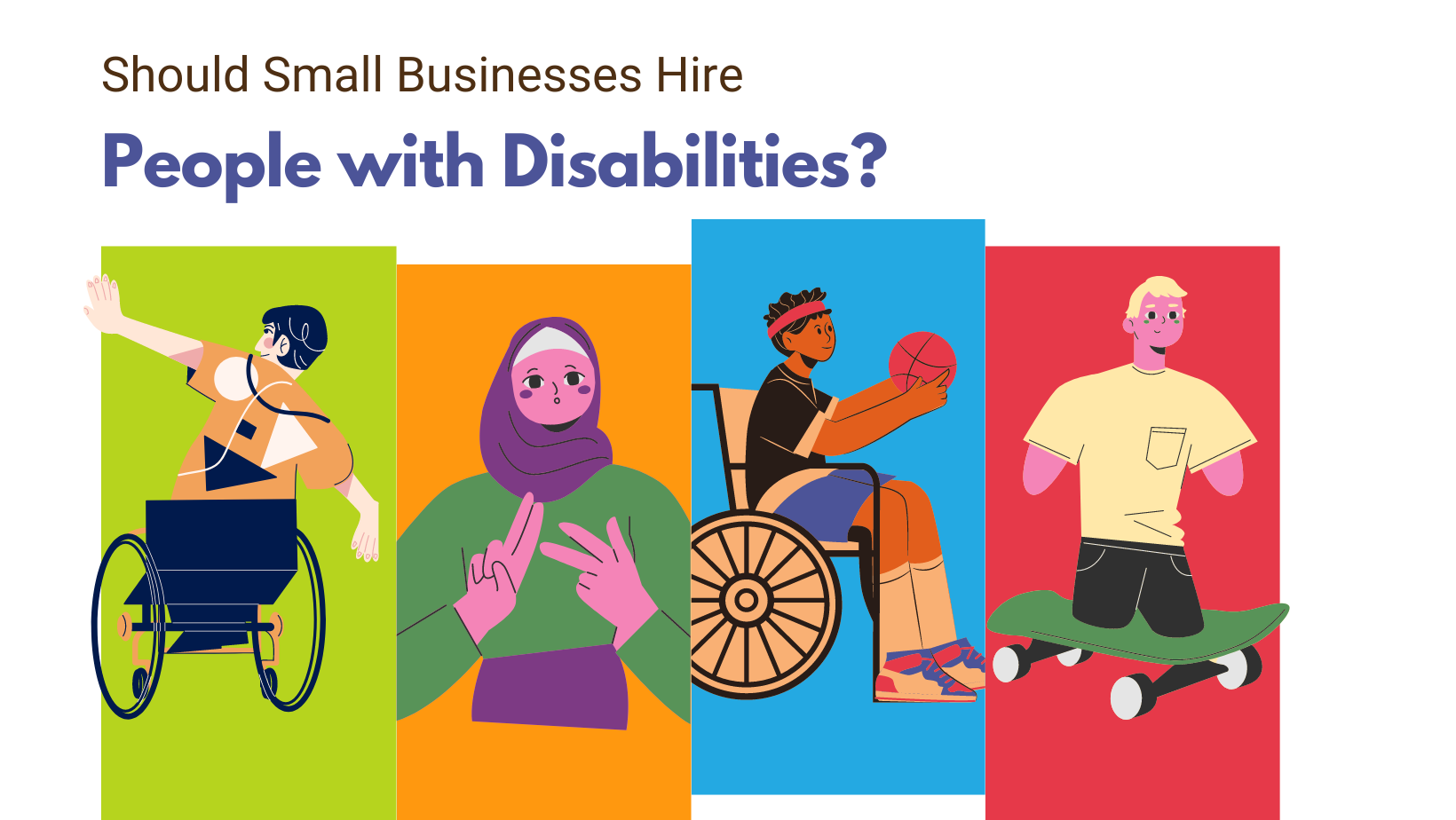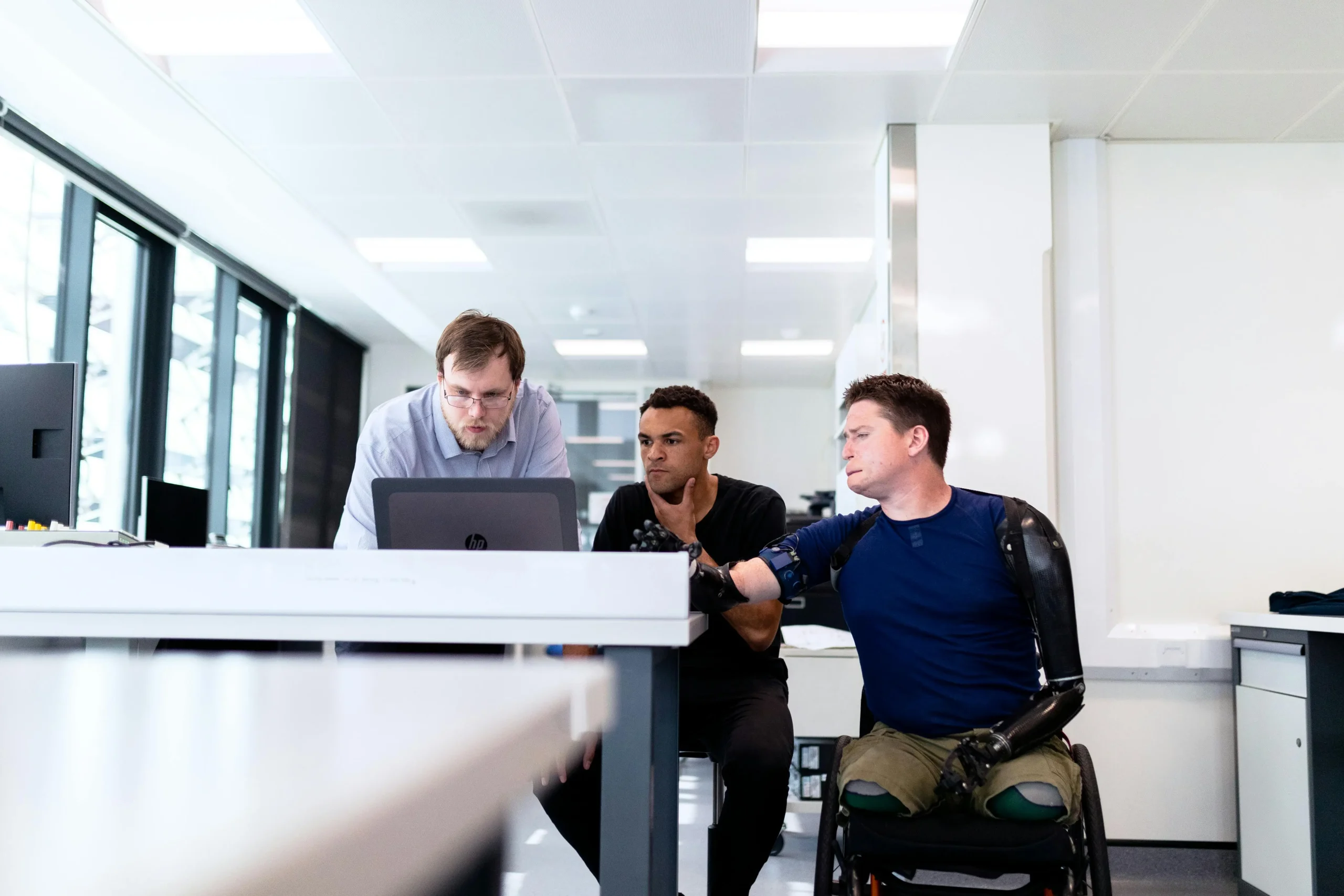Should Small Businesses Hire People with Disabilities? Fears, Myths & Advantages

In today’s diverse and inclusive world, the question of whether small businesses should hire people with disabilities is a topic that deserves careful consideration. While there are fears and myths surrounding this issue, there are also numerous advantages that come with embracing a more diverse workforce. This article explores the various aspects of hiring individuals with disabilities, addressing concerns, debunking misconceptions, and highlighting the benefits.
Understanding Disabilities in the Workplace
In order to tackle the question of hiring individuals with disabilities, it’s important to first understand the diversity within the disability community. Disabilities can encompass a wide range of conditions, both visible and invisible, affecting mobility, sensory perception, cognition, and more. Each individual’s abilities and limitations are unique, and it’s crucial to avoid generalizations.
Common Fears and Misconceptions
Hurdles in Productivity and Performance
One common fear is that hiring people with disabilities might lead to decreased productivity. However, studies have consistently shown that diversity in the workplace actually enhances productivity, as different perspectives bring about innovative solutions and fresh ideas.
Increased Costs for Accommodations
A prevailing myth is that accommodating employees with disabilities is expensive. While certain accommodations may require investment, most are reasonable and can be easily integrated, often benefiting other employees as well.
Advantages of Hiring People with Disabilities
Tapping into Hidden Talent
Individuals with disabilities often possess unique skills forged through overcoming challenges. Their determination and adaptability can bring immense value to a team. With the right support, individuals with disabilities can be highly productive and valuable members of a team. Organizations that provide equal professional opportunities to people with disabilities can witness first-hand how their determination and adaptability can lead to better business outcomes.
Diverse Perspectives Drive Innovation
Inclusive teams encourage diverse perspectives, leading to more creative problem-solving and innovative strategies. In order to build an inclusive team, it is important to create a culture in which everyone feels comfortable expressing their ideas and perspectives. This allows for open dialogue and collaboration between individuals from different backgrounds and experiences.
Improved Company Reputation
Companies that prioritize inclusivity enhance their reputation, attracting both customers and potential employees who appreciate socially responsible practices. One of the most important ways companies can demonstrate their commitment to inclusivity is through strong brand messaging. They should ensure that all communications, from marketing materials to job postings, reflect a dedication to fairness and equality. Every interaction with customers should be characterized by respectfulness and understanding.
Creating an Inclusive Work Environment
Embracing Diversity as a Core Value
Small businesses can foster an inclusive environment by celebrating differences and integrating them into their core values and company culture. Creating a diverse and inclusive environment within small businesses is an important step on the path to success. Companies can foster inclusivity by celebrating the unique differences of their staff members and making sure that these values are reflected in their core values and company culture.
Educating the Workforce
Providing disability awareness training helps employees understand the importance of inclusivity and equips them to interact respectfully with their colleagues. Small businesses are an integral part of our society and culture. Not only do they provide essential services, but also help drive innovation and create jobs. Moreover, small business owners have the unique opportunity to foster an inclusive environment by celebrating diversity and integrating it into their core values and company culture.
Accommodations and Accessibility
Tailoring Accommodations to Individual Needs
Accommodations can range from flexible work hours to assistive technologies, ensuring that employees can perform at their best. Accommodations can help employees reach their full potential, and in today’s competitive job market, it is more important than ever for employers to provide them. By providing appropriate accommodations for individuals with disabilities, employers can create an inclusive workplace that fosters equal opportunity and respect for all.
Designing Accessible Workspaces
Creating physically and digitally accessible workspaces benefits everyone and promotes a sense of belonging. Creating inclusive physical and digital workspaces is essential for enabling diversity and promoting a sense of belonging. It starts with the basics, such as making sure everyone has access to the same resources in an office environment.
Prominent Success Stories
Microsoft’s Autism Hiring Program
Microsoft’s pioneering program demonstrates the potential of hiring individuals on the autism spectrum, tapping into their exceptional attention to detail and pattern recognition skills. Microsoft has long been dedicated to fostering workplace diversity and inclusion. This commitment includes their groundbreaking autism hiring program, which has opened up a world of opportunities for members of the autism spectrum by providing them with meaningful employment.
Starbucks’ Commitment to Inclusivity
Starbucks has set an example by hiring deaf baristas and providing them with the necessary tools to excel. Starbucks’ commitment to hiring deaf baristas and creating a supportive environment for them is an example of their dedication to bringing diversity and inclusion into the workplace. By providing access to sign language interpreters, video remote interpreting services, and other accommodations such as visual cues or written orders, Starbucks has made it possible for deaf employees to thrive in their roles.
Changing Perceptions: Shattering the Glass Ceiling
Rethinking Traditional Roles
Hiring people with disabilities challenges stereotypes and expands the horizons of what they can achieve. We believe in creating an inclusive workplace that provides equal opportunities for all. We understand that by hiring people with disabilities, we will be able to challenge stereotypes and expand the boundaries of what they can achieve. Our goal is to provide a safe working environment where all employees feel valued and respected.
From Dependence to Empowerment
Creating opportunities for individuals with disabilities shifts the narrative from dependence to empowerment, enabling them to contribute meaningfully to society. Creating opportunities for individuals with disabilities has far-reaching implications in terms of social inclusion and economic development. It serves to break down outdated stereotypes and allow those living with disabilities to be seen as essential contributors to society, capable of making meaningful contributions on their own terms.
The Role of Government and Legislation
Enforcing Equal Opportunities
Government regulations, like the Americans with Disabilities Act, ensure that individuals with disabilities have equal access to job opportunities and reasonable accommodations. The Americans with Disabilities Act (ADA) is a major civil rights law that guarantees equal opportunities for people with disabilities in the workplace. Through this act, employers must provide reasonable accommodations to employees with disabilities so they can perform their job duties.
Incentives for Businesses
Governments often offer incentives to businesses that hire individuals with disabilities, making it a win-win situation for both employers and employees. Government initiatives to provide incentives for businesses that employ individuals with disabilities are a great way to create rewarding opportunities for both employers and employees. Such initiatives can help break down barriers to entry, support economic growth, and promote social change in local communities.
Building a Diverse Talent Pool
Embracing Neurodiversity
Hiring individuals with neurological differences, such as autism or ADHD, brings a fresh perspective to problem-solving and innovation. We recognize the unique skills and perspectives that individuals with neurological differences can bring to our organization. Our commitment to diversity and inclusion extends beyond age, race, gender, or sexual orientation – it includes hiring people of all abilities who are differently abled.
Expanding Skills and Knowledge
Diverse teams offer a wider range of skills and knowledge, leading to more comprehensive decision-making. Studies have shown that diverse teams bring new perspectives and ideas to the table, which can lead to more innovative solutions. Diversity in a team also encourages cross-cultural understanding and collaboration, as well as better problem-solving capabilities.
Providing Equal Opportunities
Access to a Larger Talent Pool
By considering individuals with disabilities, businesses tap into a largely untapped talent pool, opening doors for capable candidates. Businesses can benefit greatly from investments in accessibility. By investing in the inclusion of individuals with disabilities, businesses unlock a highly talented and motivated pool of potential employees.
Redefining Workplace Equality
Prioritizing diversity and inclusivity redefines the concept of workplace equality, promoting a fair and just work environment. We understand that workplace diversity and inclusivity are key tenets in fostering a culture of respect, collaboration, and trust. That is why we are committed to promoting a work environment where everyone feels respected for their unique personalities, backgrounds, and experiences.
Boosting Employee Morale and Loyalty
Fostering a Sense of Belonging
An inclusive work culture increases employee morale and loyalty, leading to higher job satisfaction and retention rates. Creating an inclusive work culture is essential in order to increase employee morale, loyalty, and job satisfaction. By encouraging a workplace that focuses on inclusion, employers can foster a collaborative environment that allows for growth and the development of meaningful relationships between colleagues.
Employees as Advocates
When employees witness the commitment to inclusivity, they become advocates for the company, attracting more like-minded individuals. In order to create an inclusive workplace, companies must demonstrate their commitment from the top down. Leaders should be proactive in prioritizing diversity and implementing policies that ensure all employees are treated with respect and given equal opportunities for career growth.
Enhancing Innovation and Creativity
Diversity Breeds Creativity
Diverse teams bring together varied experiences and backgrounds, fostering a rich environment for creativity to flourish. Inclusive team environments spur innovation and creativity, with individuals from different backgrounds bringing unique experiences to the table. An environment that promotes diversity not only deepens understanding of the target audience but also strengthens relationships between colleagues and partners.
Strengthening Problem-Solving Abilities
Different perspectives lead to a broader range of solutions and strategies when tackling challenges. At any organization, it is essential to think about challenges from different perspectives. By looking at a problem from several angles, teams can find more robust solutions that better address the root of the issue.
Overcoming Challenges Through Collaboration
Collaboration as a Strength
Facing challenges together encourages collaboration and teamwork, creating a more cohesive and harmonious work atmosphere. To foster a collaborative and positive work atmosphere, it is essential to encourage team members to face challenges together. By working together, employees can bring out the best in each other and create innovative solutions to overcome obstacles.
Encouraging Mutual Support
Inclusive workplaces often result in colleagues supporting one another, strengthening the overall work dynamic. Such teams benefit from the diverse perspectives and skillsets of members, leading to better problem-solving and innovative solutions. Employees in inclusive workspaces also feel respected, valued, and appreciated for their contributions, making them more likely to stay with the company long-term.
Fostering a Culture of Acceptance
Beyond Compliance
Moving beyond legal obligations, small businesses can champion acceptance and equality, setting a powerful example. Small business owners have the unique opportunity to lead by example in advocating for inclusion and diversity. By committing to creating a workplace culture that values equity, small businesses can show their employees, customers, and partners that these values are core components of their mission.
Embracing Individuality
Valuing employees for their unique qualities contributes to a more open, accepting, and harmonious workplace. Valuing employees for their unique qualities is essential to creating an inclusive and supportive work environment. By recognizing the strengths and talents that each individual brings, we can foster a culture of respect, appreciation, and collaboration.
Conclusion
In a world that champions diversity and inclusivity, small businesses should not shy away from hiring individuals with disabilities. The fears and myths surrounding this issue are often unfounded, and the advantages are manifold. Embracing a diverse workforce not only leads to innovation and improved company reputation but also fosters a culture of acceptance and equality. By creating accessible work environments, providing necessary accommodations, and celebrating individuality, small businesses can play a pivotal role in shaping a more inclusive future.













